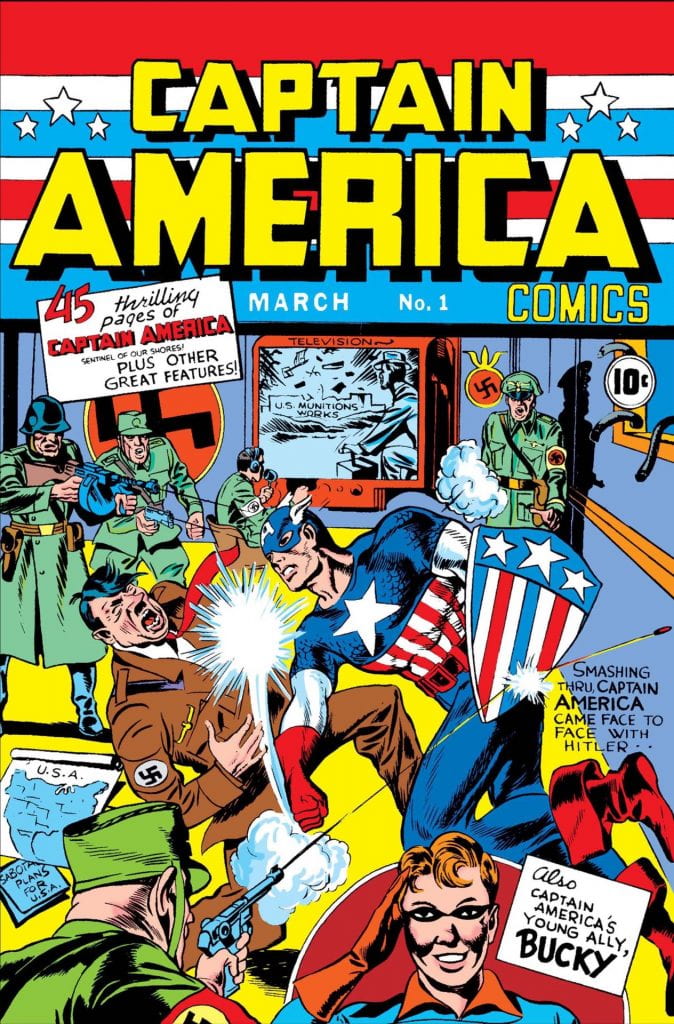In the fall of 2019, during my Fulbright Fellowship in Chile, which coincided with a social revolution that continues to reverberate across Chilean society, a large graffiti-mural caught my attention along a wall in downtown Santiago: “Tu normalidad es privilegio!”
Tag: The 20th Century
While most of the late seventeenth and eighteenth century was relatively quiet regarding witchcraft, dark magic, and Devil worshiping, accusations of witchcraft would once again appear in the Ozark region of Missouri and Arkansas during the late nineteenth and early twentieth centuries. The geography of the Ozark region could best be described as rolling hills, heavily forested, and composed of remote agricultural communities that were largely self-sufficient. The Ozarks were originally colonized by the French but eventually, British squatters, poor farmers, and adventurers would make their way into the region even though it was illegal for British citizens to settle west of the Appalachian Mountains.
Fernando Amador: Welcome, you’re listening to an episode of the crisis and catharsis podcast where we explore stories that show how people face times of crisis, focusing on artistic expression like literature, music and art, but also the daily activities like cuisine and stories. This episode focuses on Anna May Wong, the first Asian American film star. I’m Fernie, a history PhD student at Stony Brook University and I’m here with Professor Shirley Lim. Hello, Professor.
“I knocked out Adolf Hitler over 200 times,” says Captain America in his title Marvel Studios film. And we laughed, because Chris Evans’ comedic timing is gold, but also because, good, knock him out again. Captain America was first published by Timely Comics, Marvel’s predecessor, in 1941, and he was a quick favorite during the wartime for obvious reasons. He fought for what was right, and every time he got knocked down, he got back up again, and that’s what the people needed during World War II. It should come as no surprise, then, that during the tail end of the Great Depression and into the long years of World War II, we have something referred to as the golden age of comics.
I think it was around the second week of quarantine here in New York that I discovered marble racing. I was on Twitter, naturally, and I saw a video start up from someone or some account, I don’t remember, but I do remember thinking, “Wow, it mustbe bad if I can’t stop watching this.” It was a marble racing video from something called Marbula 1, and yes, it is just as good as it sounds. Marble racing got some pickup on Twitter as a result of some popular accounts reposting their videos, even earning air time on ESPN The Ocho, and with the quarantine putting a stop to most sports’ seasons, it shouldn’t come as a big surprise. We have something of a history of reviving sport and competition even when the future seems bleak.
Heroes in the Home: Hollywood Responds to World War II with Devin Kelly, interviewed by Bonnie Soper
BONNIE: Welcome, you’re listening to an episode of the Crisis and Catharsis podcast, where we explore stories of how people have found relief in times of crisis, focusing on artistic expression, like literature, music and art, but also expression in daily life, like cuisine and oral histories. This episode focuses on Hollywood and the use of movies to get the United States to enter World War II, but how they also functioned as mass entertainment in a precarious period for many Americans. My name is Bonnie Soper, I’m a PhD student at Stony Brook University who studies religious and political dissidence in early modern Scotland. Today I will be asking questions and interviewing Devin Kelly. Devin has a masters degree in public history from the University of North Carolina at Wilmington and currently works in Collections at the Cape Fear Museum of History and Science.
Keep listening if you want to learn more about war propaganda and the changing nature of women and citizenship during the 1940s …
Stores had “Business as usual” signs on their windows, but life was hardly “as usual” in London during the Blitz. Beginning in September 1940, German bombs fell on London at night. For their safety, millions of children from the capital were sent away to live with family, friends, or volunteers in the countryside. For those who stayed in London, life changed dramatically. London’s East End was hit particularly hard, with many of the foreigners who lived there losing their lives and homes. Food and clothe rationing meant every piece of land was used to grow extra food and people were given “coupons” to obtain the clothes they needed. At end of the Blitz, over 40,00 people died and over a million left homeless.
During the Great Depression, unemployment soared as Americans grappled with failing banks, environmental catastrophe, and the challenge of feeding themselves while impoverished. Due to the hardships of poverty faced by millions in the 1930s, the Great Depression remains one of the most notorious periods in American history. Echoes of the Depression can be felt today, in news articles and interviews where people express fears that the COVID-19 pandemic will again force much of the world to face severe economic decline and unemployment (1). Now that we have faced the initial shock of the pandemic and attempt to adapt to the requirements of social distancing and staying at home, articles on Depression-era cooking are surfacing. Whether advice on how to make a ‘Depression Cake’ without milk, butter, or eggs or minimal ingredient recipes such as ‘Depression Bread,’ people are clearly turning to the food of the Great Depression for comfort while coping with limited resources and the stress of the COVID-19 pandemic (2).
© 2025 Crisis and Catharsis
Theme by Anders Noren — Up ↑






